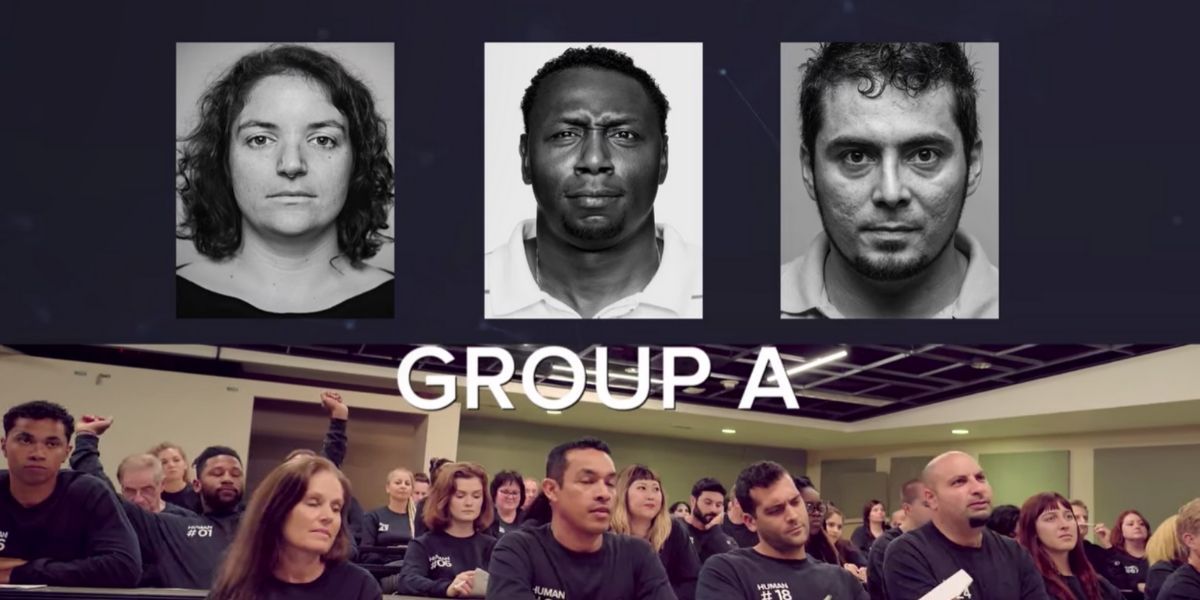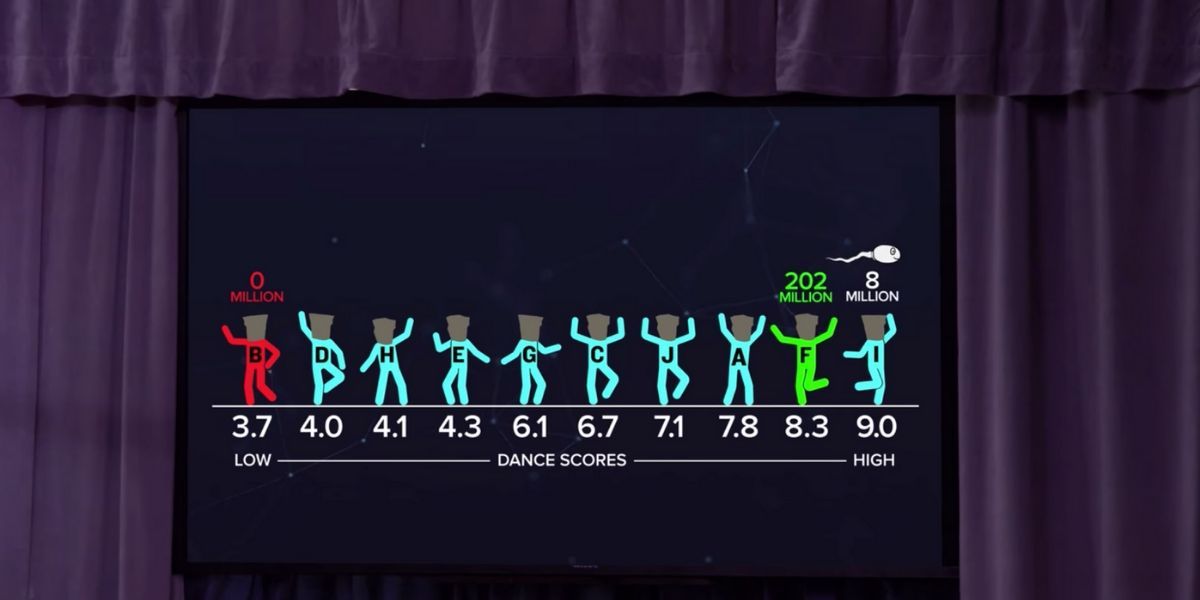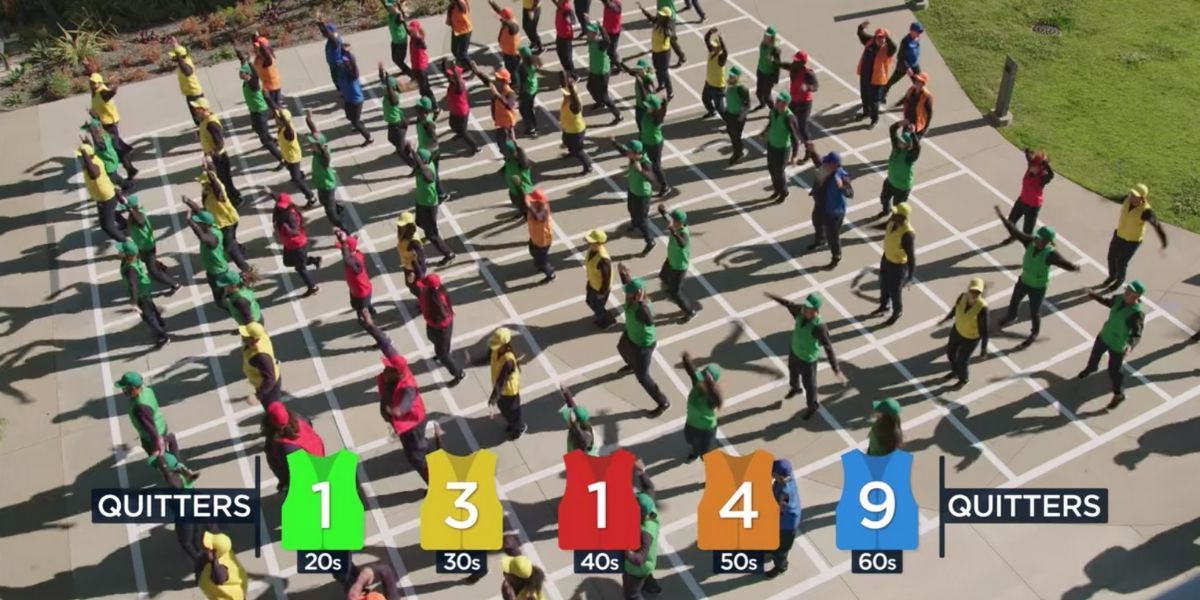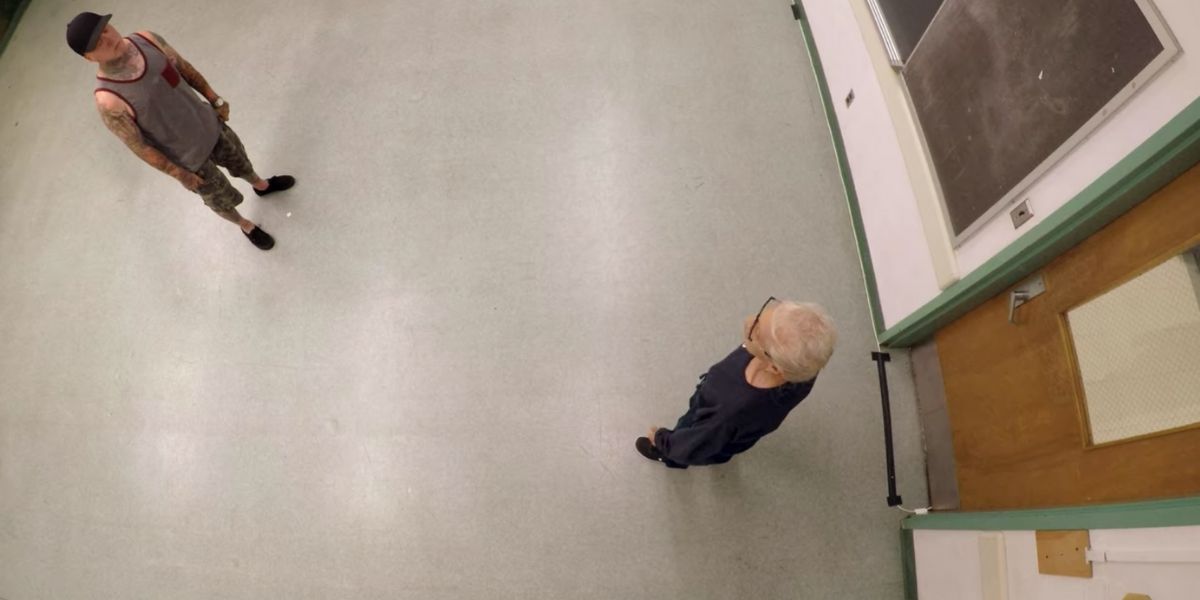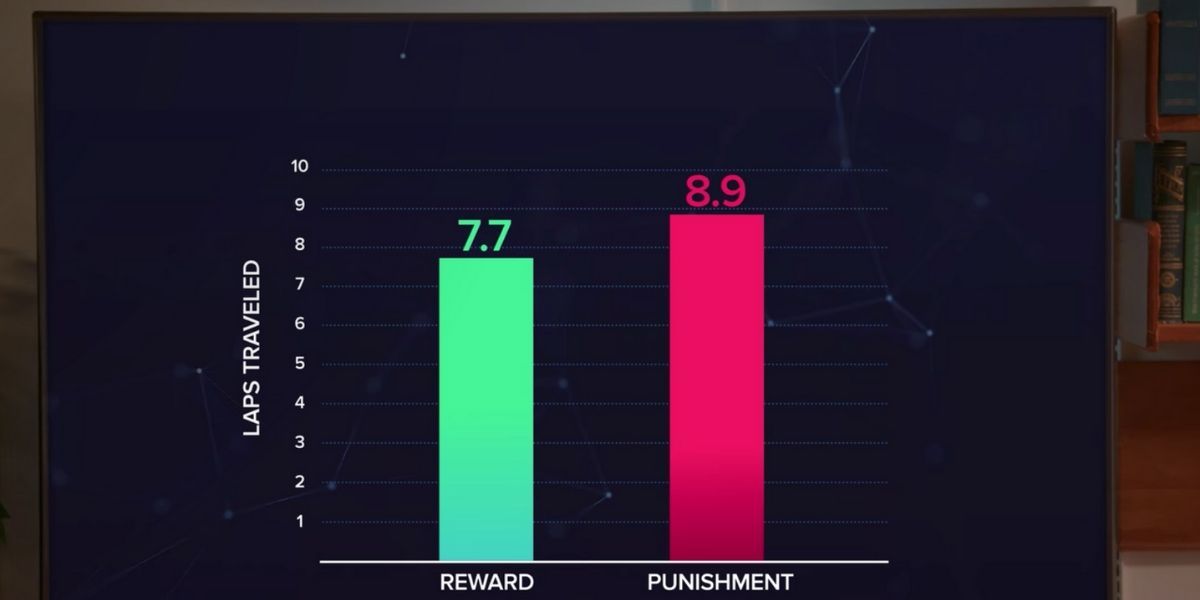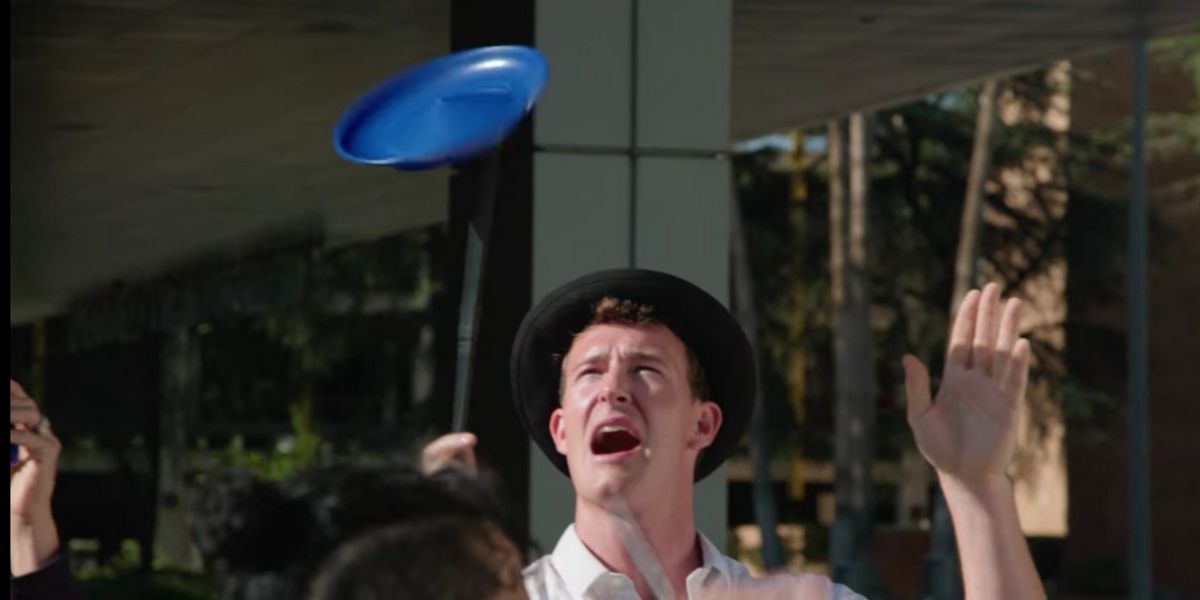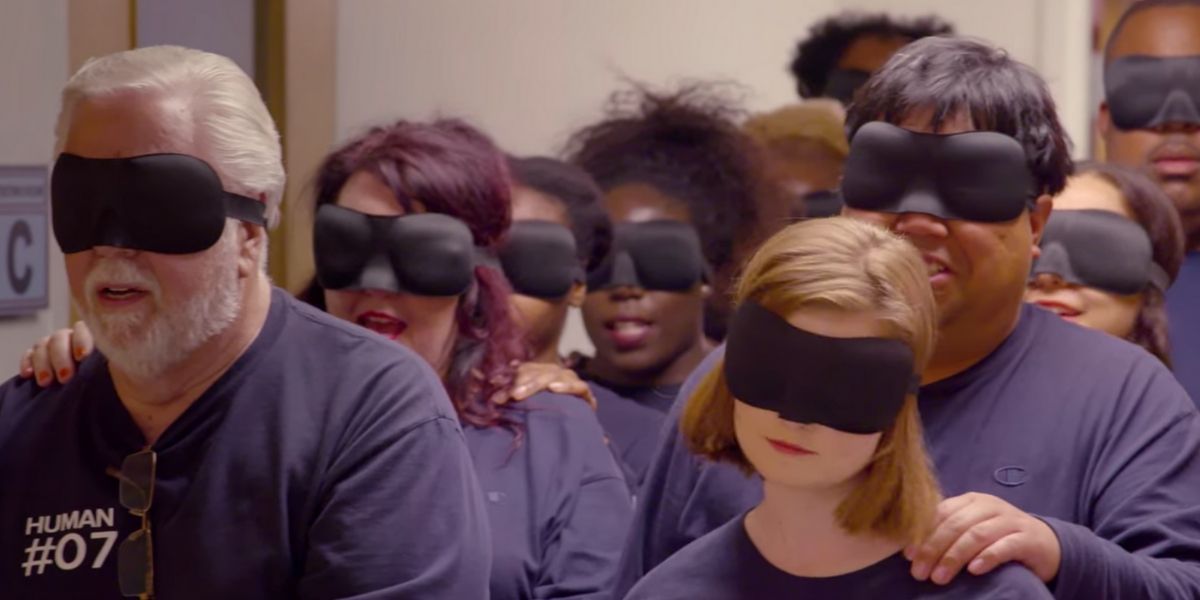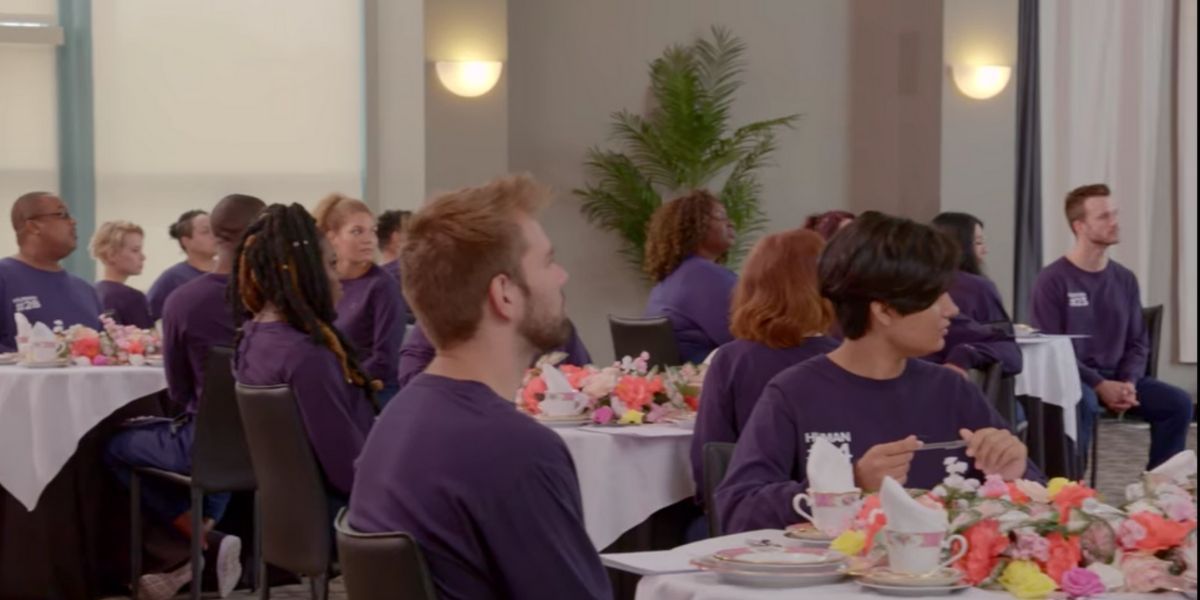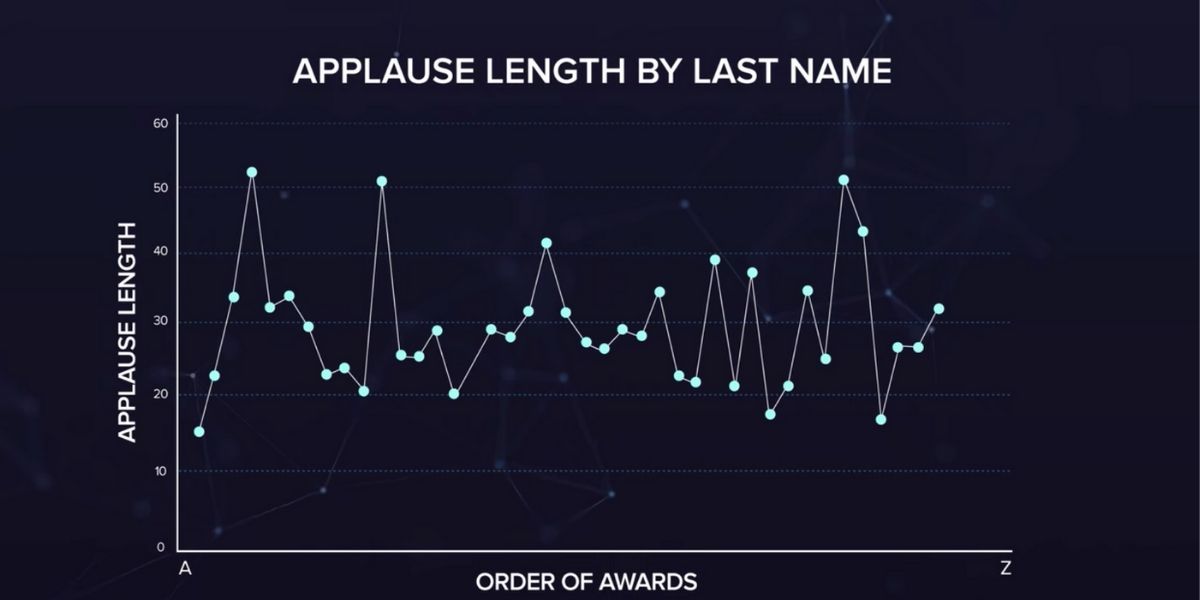For anyone looking for an invigorating and mind-enhancing TV series, look no further than Netflix's latest show 100 Humans. The series is a social experiment where three hosts (Allie Ward, Sammy Obeid, and Zainab Johnson) test 100 different people of all different ages, races, sizes, etc... on various theories we've all wondered about. The series is divided into eight episodes focusing on different topics in a fun and eventful way.
Throughout the series, the hosts place these 100 humans through unknown experiments to achieve the most authentic and raw answers. If you don't have time to binge all eight episodes, keep scrolling for the most shocking results.
Good Looks Can Keep You From Jail
In the first episode "What Makes Us Attractive?", the hosts want to know if a person's looks help them get away with more. Can a more attractive person get less jail time than a person who looks rough around the edges?
The hosts separated the 100 humans into different groups and showed them different people on trial for various crimes. As a pretend jury, the hosts asked them how long they would sentence them to jail and as it turned out, the mediocre-looking people were sentenced to a longer prison sentence than those who looked more attractive or friendly. This comes down to good looks clouding our judgment and assuming that "ugly" people do ugly things.
The Theory That Good Dancers Had A Higher Sperm Count Was Debunked
Also in "What Makes Us Attractive," our hosts want to get to the bottom of an old theory. Is it true that men who are good dancers have a higher sperm count? To find out, the hosts asked if any male would be willing to enter a dance competition and offer a sample of sperm. The chosen contestants were then given a paper bag to place over their head (to keep the focus on their dance moves) and dance against each other. The audience then voted for the best dancer.
Once the dancers were listed, the hosts showed us their sperm counts and as it turns out, it's not true! While the worst dancer did have a concerningly low amount of sperm (zero), the best dancer did not have the highest number of sperm (the second to best dancer did).
20-Year-Olds Are The Most Successful At Life
In the second episode "The Best Age To Be Alive," our hosts want to know what age are we the most efficient? They tested all 100 humans—ranging from their 20s to their 60s—in different ways to see who came out on top. Through teamwork exercises, memory games, technology quizzes, and problem-solving, we watched what types of humans were the most productive.
While the hosts believed those in their 30s and 60s would do the best, it was the 20-year-olds who came out on top. On the road map of life, those in their 20's were more driven, energetic, and communicative.
Do We Avoid People Who Look Different Than Us?
In episode four ("Are We Biased?"), the hosts want to know if we judged those around us. Are we more comfortable with those who look like us as opposed to those who are completely different from us? To put this question to the test, they placed an older gentleman, a tattooed man, and an overweight man in three different rooms and asked each human to observe the person in the room one at a time.
The results were interesting. Those with tattoos stood closer to the tattooed man, those over 60 (who theoretically should have stood closer) stood further away from the older gentleman, and it was a near tie when it came to the overweight male and his visitors. In short, our own biases can turn us away from those similar to us.
People Work Harder In Fear Of Punishment
Do we work harder when there's a reward in our future or when there's a punishment? Our hosts placed all 100 humans in organized lines and had them toss a beach ball down the line as many times as they can in a short amount of time. To encourage each team to work quickly, the hosts said the winner gets a prize in the first round.
The lines passed the ball on average of seven times when there was a prize involved. But in the second round, there would be a punishment instead of a prize. Does that mean the lines worked harder so they wouldn't be punished? Yes! They passed the ball on average of almost nine times! In short, punishment is a better motivator.
Praise Is Better Than Criticism
Similar to the experiment above, the hosts wanted to know if criticism makes a person work harder or if praise is the ultimate motivator? Using a fake judge, the hosts had the 100 humans spin plates. Those who were criticized by the judge (no matter who great or poor they did) did worse on their second try. Those who were praised did even better in the second round! This theory shows that praising efforts can achieve more greatness than criticizing.
Having Fun Motivates Us More Than Money
In the episode "How To Be Happy," the 100 humans are pushed to see what makes them happiest. In one experiment, the hosts wanted to see if groups had more fun creating something as a team for fun or for money. The first group of people was told a cash prize would go to the winner but the second group were simply told to building something as a team. So who had more fun?
When the competition was for money, the groups were very quiet and focused. But those who did it for fun collaborated more and were laughing and smiling throughout the experiment. While earning money is fun, the road to earn money isn't necessarily fun. Being creative for the sake of creating made people more loose and expressive, thus having more fun.
Older People Smell Differently
Do older people smell differently than young people? To put these 100 humans' senses to the test, they were blindfolded and placed in two rooms: one lined with older people and one filled with younger people. Individuals were then asked to go down the line and smell the individuals in front of them while blindfolded.
What did they smell? As we saw, older individuals do, in fact, smell different! Apparently, those over 40 produce a hormone compound that has a certain scent to it than those who are younger.
Music (And Mimes) Can Affect Our Taste
In "Can You Trust Your Senses?", the hosts wanted to see if music can affect our tastebuds. Meaning, do certain foods taste better if there's pleasant music in the background? The humans were separated into groups with the same exact food but one group had low notes from tubas playing in the background, the other group had high notes from a piccolo group, and the final group had a mime.
They were served a dry cracker, a tart juice, a piece of raw, unsweetened chocolate. What did they find? The group who listened to nicer music (piccolos) enjoyed their food more!
The Last Name Effect Isn't Real
The Last Name Effect is a theory that those with names starting with letters towards the end of the alphabet get the short end of the stick. When things are done alphabetically, their names are called last, they may have to sit in the back, and people often forget about them.
To test this theory, the hosts put on a 45-minute awards ceremony to see if those with names closer to the end of the alphabet had lesser applause than those from the beginning of the alphabet. As we can see from the chart, the enthusiasm remained similar from the start, proving that this theory isn't technically true.


